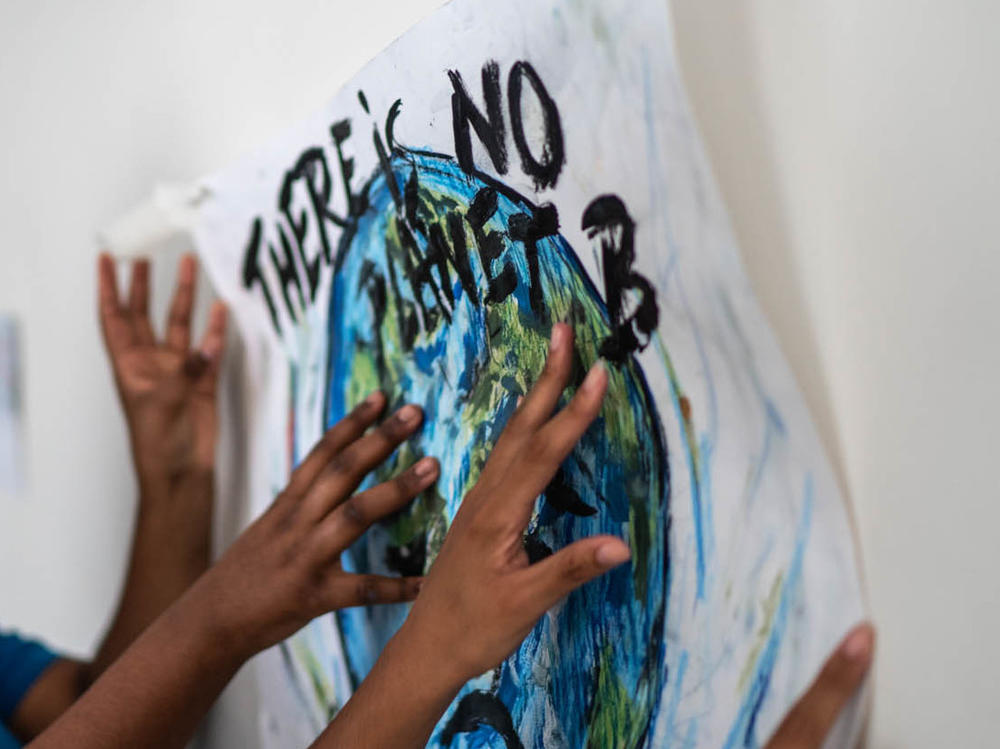Section Branding
Header Content
Young People Are Anxious About Climate Change And Say Governments Are Failing Them
Primary Content
How are young people coping with climate change? The answer, according to one study, is not well, and for good reason.
For a forthcoming study, researchers with the U.K.'s University of Bath and other schools spoke to 10,000 people in 10 countries, all of whom were between the ages of 16 and 25, to gauge how they feel about climate change. The prevailing response could be summed up in two words: incredibly worried. And the respondents say governments aren't doing enough to combat climate change.
The survey arrives more than six weeks before the world's nations are set to gather in Glasgow, Scotland, at an annual meeting convened by the United Nations to address climate change. Scientists say that nations aren't passing the right kinds of bold policies to avert the worst effects of climate change. The survey suggests that young people around the world grasp how widespread and dangerous political inaction is on climate change.
The study concluded that there's a correlation between negative emotions, such as worry, and beliefs that government responses to climate change have been inadequate. So the way governments have been addressing — or failing to address — climate change is directly affecting the mental health of young people.
Of those surveyed, nearly 60% reported that they felt either "very" or "extremely" worried about climate change, and more than half said climate change made them feel "afraid, sad, anxious, angry, powerless, helpless, and/or guilty."
Positive feelings such as optimism were reported least among the respondents, researchers said. In fact, 77% said that they considered the future to be frightening, and 56% agreed with the viewpoint that humanity is doomed, according to the study.
For many young people, those feelings of fear and worry affect their ability to function, too, results showed. More than 45% of the respondents said the way they feel about climate change adversely affects their day-to-day lives.
And for those living in poorer countries in the Southern Hemisphere, who are more likely to be affected by natural disasters worsened by climate change, the outlook is even worse: Overall, they're more worried, and their ability to function is even more impeded, researchers found.
Young people also said they were generally dissatisfied with how their governments have been handling the realities of climate change.
Across all the countries represented — the United States, the United Kingdom, Australia, Brazil, France, Finland, India, Nigeria, Portugal and the Philippines — 65% of young people felt their government was failing them on climate change and 60% felt that the government had been dismissing citizens' distress over it. Nearly half of those who said they talk with other people about climate change said that their concerns were ignored, according to researchers.
Combating climate change individually isn't enough on its own, the researchers said. Those in power have a responsibility to act to protect not only the Earth but also the mental health of those who stand to inherit the planet, they said.
As one 16-year-old included in the study wrote, "I think it's different for young people. For us, the destruction of the planet is personal."
Copyright 2021 NPR. To see more, visit https://www.npr.org.

